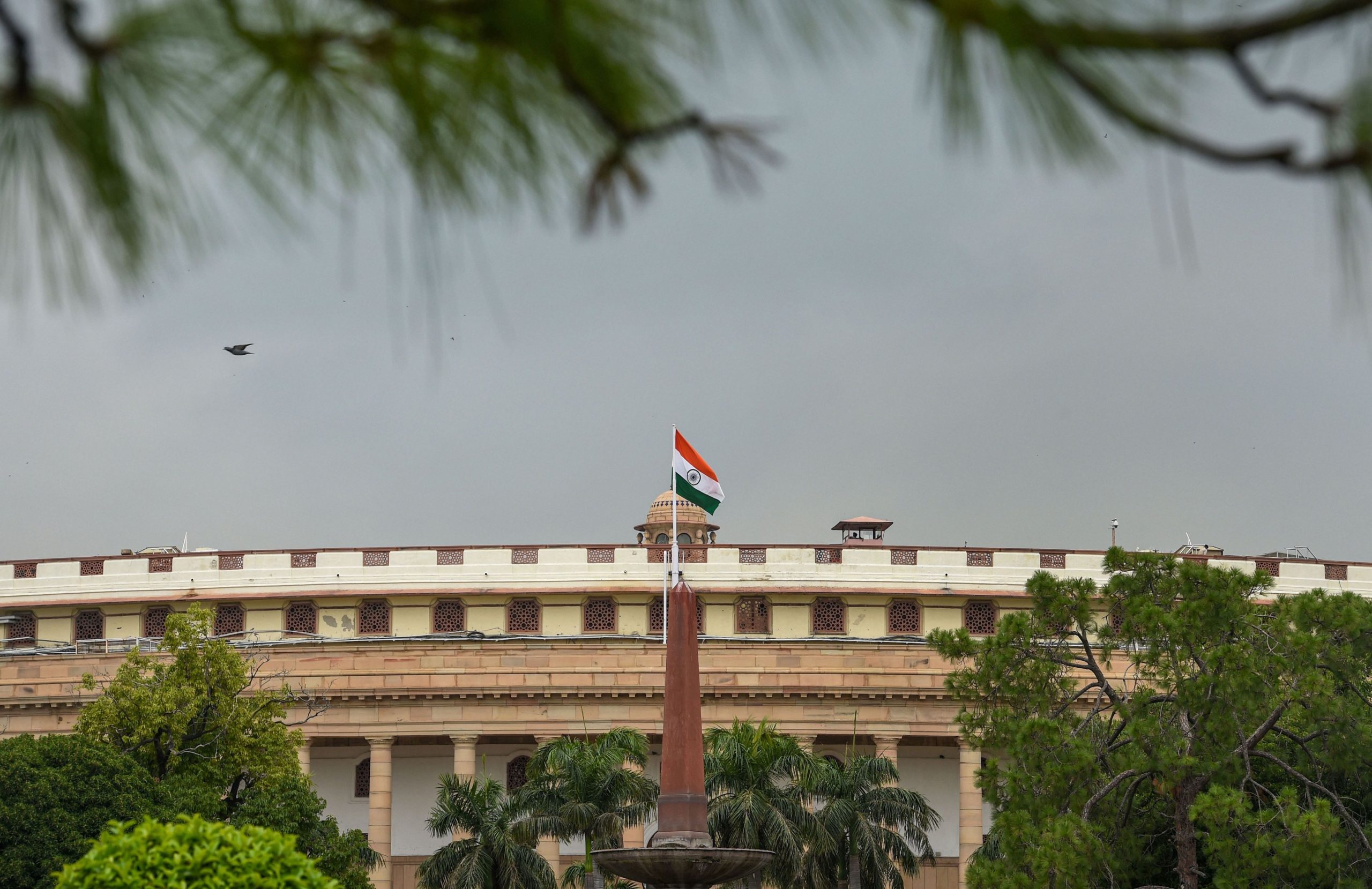NEW DELHI, Aug 7: Implementation of the Delhi Services bill, passed in Rajya Sabha today, is likely to halt for the time being the frequent skirmishes between the AAP dispensation and the Lt Governor over governance issues as the legislation puts a stamp on the Centre’s control over the city Government’s bureaucracy.
The Government of National Capital Territory of Delhi (Amendment) Bill, 2023, was passed with the Upper House of Parliament approving it with 131 votes in favour and 102 against.
Union Home Minister Amit Shah introduced the contentious bill in the House and said that the proposed legislation is aimed at providing effective and corruption-free governance in the national capital.
The bill, which was passed by the Lok Sabha last week, replaces an ordinance promulgated by the Centre for handling the transfers and postings of officials in the Delhi government.
However, the matter is still hanging fire as the Supreme Court last month formed a constitution bench to examine the power of Parliament over governance in Delhi, which is yet to pronounce its judgment.
At the core of the power tussle between the Centre and the Lt Governor on one hand, and the elected AAP dispensation in Delhi on the other, is a home ministry notification issued on May 21, 2015, that empowered the Lt Governor to have jurisdiction over “services” matters of Delhi government involving transfer and postings of bureaucrats.
The notification also provided that the Lt Governor at his “discretion” may consult the chief minister whenever he deemed fit on issues of services.
The notification which came nearly two months after Arvind Kejriwal took oath as the chief minister of Delhi on February 14, 2015, was challenged by the AAP government in the high court.
In the last eight years since the notification, a long-drawn battle between the Lt Governor’s office and the AAP government led by Kejriwal continued over a range of issues, including teachers’ training, running of free yoga classes, the appointment of DERC chairman, foreign visits of the CM and ministers, removal of over 400 experts hired by the government, and funding of mohalla clinics, among others.
Experts said prior to the home ministry’s notification, the control over the “services” department of Delhi was “vague”.
“There was an understanding between the Lt Governor and the chief minister over the transfer and posting of officers. The transfer and posting of officers of the commissioner and the higher level was solely dealt by the Lt Governor, while the CM exercised a say in matters of other officers,” former chief secretary of Delhi P K Tripathi said.
“Differences, if any, used to be settled through discussions between the two sides,” he added.
A section of officers in the Delhi government believes that the new legislation will bring an end to the running feud between the elected government in Delhi and the Centre, bringing clarity to the jurisdiction of the constitutional authorities.
“We need clarity regarding policy matters and administration for smooth functioning that is hit if such a situation with two constitutional functionaries at loggerheads, exists,” said a senior officer.
The Lt Governor’s office and the Delhi Government have locked horns on numerous occasions since 2015 while a legal battle is also going on between the two sides.
The High Court, in August 2016, said the Lt Governor is the administrative head of the National Capital Territory and the AAP government’s contention that he is bound to act on the advice of the Council of Ministers is “without substance”.
The Supreme Court, in February 2017, referred pleas on Delhi-Centre row to a constitution bench that commenced its hearing in November 2017.
In July 2018, the SC said the Lt Governor does not have independent decision-making powers and is bound to act on the aid and advice of the Council of Ministers. Further, a five-judge bench was constituted by the SC on November 9 for a hearing of the matter.
The constitution bench on May 11, 2023, ruled that the Delhi government has legislative and executive powers over the administration of services except for public order, police and land.
A week later, the Centre brought an ordinance to annul the effect of the SC verdict and formed a national capital civil services authority (NCCSA) headed by the Delhi CM to decide the transfer and posting of officers.
The Authority by nature of its composition was tilted in favour of the Centre.
While the AAP government challenged the ordinance in the SC, the Centre came out with the Government of National Capital Territory of Delhi (Amendment) Bill, 2023, to accord parliamentary sanction to the ordinance.
The AAP dispensation moved courts on more than a dozen occasions against decisions of the Centre and the Lt Governor since the GNCTD (Amendment) Act, 2021 was implemented two years ago giving the Lt Governor primacy in the governance of the city.
The face-off between the two sides sharpened in the last year as V K Saxena took over as the Delhi Lt Governor in May 2022.
In November 2022, Saxena restricted Jasmine Shah from discharging his functions as the vice-chairperson of the Dialogue and Development Commission of Delhi (DDCD). He challenged it in the high court earlier this year.
In April, the AAP government approached the SC over the issue of sending school teachers for training in Finland.
Education Minister Atishi moved the Delhi High Court against ministries of the Central government for allegedly delaying her travel clearances to the UK. She was finally able to visit the country after the court’s intervention.
A similar petition was filed by the transport minister in August 2022 in the high court, challenging a provision of the Centre’s approval for foreign visits of the chief minister and ministers.
After winning the Municipal Corporation of Delhi elections in December 2022, the ruling AAP approached the apex court against voting rights given to 10 aldermen appointed by the Lt Governor. (PTI)
Trending Now
E-Paper


